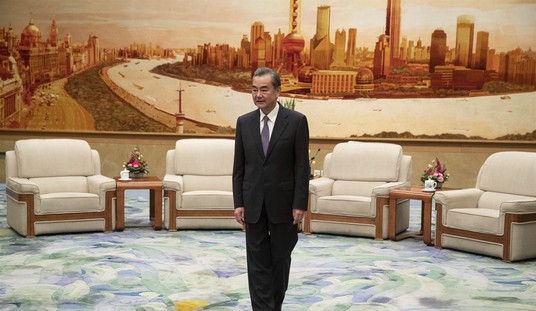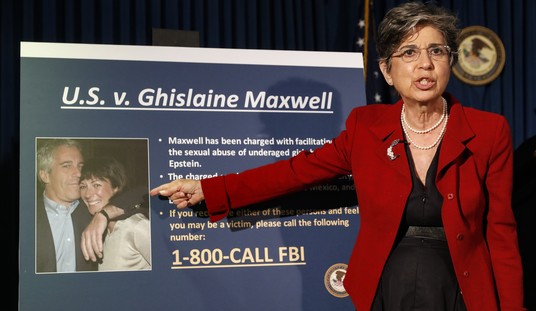Consider this one of the clearer examples of a diplomatic message being received accurately. Russian prime minister Dmitry Medvedev warned the US today that the applications of sanctions by Congress and Donald Trump would amount to an act of “economic war.” If that’s the case, how does Russia define its chemical-weapons assassination attempts and their intelligence-disruption operation during our 2016 election?
Неважно, I believe:
Russia warned the United States on Friday it would regard any U.S. move to curb the activities of its banks as a declaration of economic war which it would retaliate against, stepping up a war of words with Washington over spiraling sanctions.
The warning, from Prime Minister Dmitry Medvedev, reflects Russian fears over the impact of new restrictions on its economy and assets, including the rouble which has lost nearly six percent of its value this week on sanctions jitters.
Economists expect the economy to grow by 1.8 percent this year. But if new sanctions proposed by Congress and the State Department are implemented in full, something that remains uncertain, some economists fear growth would be almost cut to zero in future.
Reuters curiously leaves out the catalyst for the sanctions applied by the White House, never mentioning the assassination attempt on Sergei Skripal and the Russian use of a chemical weapon in the UK, a key US ally. The sanctions bill in Congress has an uncertain future, but it’s the Trump sanctions regarding the Skripal hit that has Russia flustered. Russia denies any involvement in the Skripal attack, but the use of Novichok on a former mole for the British sent a loud and unnuanced message of its own to other Russians who work with foreign intelligence.
In the US, efforts have begun to bolster security for other Russians that might be targeted for assassination by Vladimir Putin:
If Russia was brazen enough to kill with a chemical weapon on British soil, could it happen in the United States?
Heightened concern spurred by the poisoning of a former Russian spy in Salisbury, England is prompting U.S. national security officials to consider seriously the prospect of a similar attack, current and former officials said. As the Trump administration punishes Moscow with more sanctions, the U.S. is taking a renewed look at how best to protect Russian defectors, dissidents and other émigrés, as well as how to respond if a military-grade nerve agent were ever deployed on American soil. …
The Salisbury attack in March also coincides with other recent actions inside the U.S. that were similarly audacious, including intricate influence operations in both the 2016 and 2018 elections and a hack of the U.S. energy grid. The federal government has attributed all of those to Russia.
“If you think the Russians are trying to be good neighbors, this is the kind of thing they still do,” Director of National Intelligence Dan Coats said in an interview this month with NBC News Chief Foreign Affairs Correspondent Andrea Mitchell. “Russians do bold things and extraordinary things.”
In other words, the administration now realizes that Russia has been conducting an intelligence war for years against the West. That includes their disruption efforts in the 2016 election, weak as they were, as well as a string of assassinations in the West that go as far back as Alexander Litvenenko over a decade ago. The sanctions being applied recognize that reality and intend to make Russia pay a price for it where it hurts Putin most — in the Russian economy.
As Reuters does note, they’ve already begun to worry about the impact, especially the sanctions on their banks:
“And it would be necessary, it would be needed to react to this war economically, politically, or, if needed, by other means. And our American friends need to understand this,” he said, speaking on a trip to the Russian Far East.
In practice however, there is little Russia could do to hit back at the United States without damaging its own economy or depriving its consumers of sought after goods, and officials in Moscow have made clear they do not want to get drawn into what they describe as a mutually-damaging tit-for-tat sanctions war.
Perhaps it’s finally dawning on our Russian “friends” that we’re not playing around any more. Even as reluctant as this action has been, it’s a recognition that Russia has been anything but friendly to the US and the West and that it’s high time the US and the West provide responses not in kind but in overwhelming impact. When the oligarchs start seeing their money disappear, perhaps they might rethink their leadership choices … and their choice of targets.








Join the conversation as a VIP Member